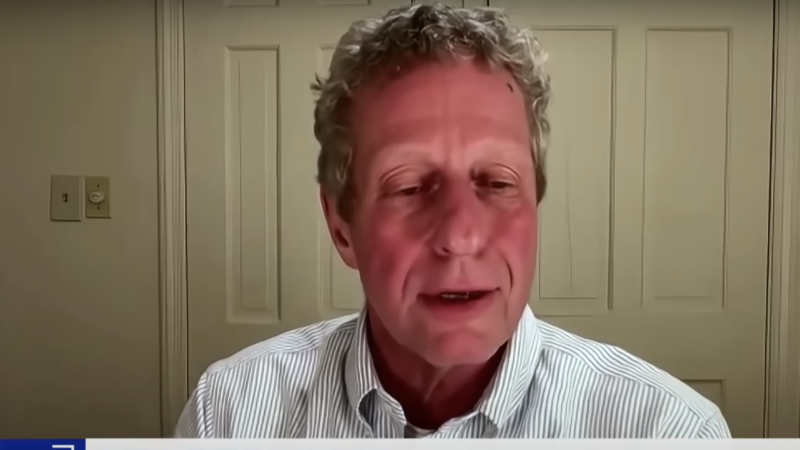NPR's Uri Berliner Has Shown That DEI Is About Punishing Heresy
The long-time public radio editor's resignation proves he was right all along.

Uri Berliner, a long-time editor at National Public Radio (NPR), has resigned from the media organization.
His saga began last week after he published an essay for Bari Weiss' The Free Press in which he criticized creeping liberal groupthink at his place of employment. Many NPR employees were furious that he would "torch his workplace," though Berliner's piece carefully noted that he still believes the outlet is important and should continue to receive government funding.
For writing about his own outlet without seeking permission from his bosses, Berliner was suspended for five days without pay. But ultimately, he has chosen to resign.
"I cannot work in a newsroom where I am disparaged by a new CEO whose divisive views confirm the very problems at NPR I cite in my Free Press essay," he said, referencing statements made by NPR CEO Katherine Maher—whose considerable history of tweeting woke nonsense is now under public scrutiny as well.
And he is quite correct. Berliner's article for Weiss concludes with this thought: "What's notable is the extent to which people at every level of NPR have comfortably coalesced around the progressive worldview. And this, I believe, is the most damaging development at NPR: the absence of viewpoint diversity."
Berliner cited Russiagate, the Hunter Biden laptop story, and coverage of the lab leak theory of COVID-19's origins as coverage areas where NPR's bias in favor of the progressive, establishment Democratic Party perspective led the outlet astray. A media company that did not completely dismiss non-progressive opinions out of hands might have fared better.
The absence of viewpoint diversity at NPR should be no surprise, however, when its CEO apparently believes that ideological diversity is a "dog whistle for anti-feminist, anti-POC stories." For Maher, diversity involves "race, ethnicity, gender, class, ability, geography"—everything except diversity of thought.
That Silicon Valley v Russia thread was pretty funny — until it got onto ideological diversity. In case it's not evident, in these parts that's often a dog whistle for anti-feminist, anti-POC stories about meritocracy. Maybe's not what the author meant. But idk, maybe it is?
— Katherine Maher (@krmaher) July 6, 2018
And Maher is not alone. Some 50 of Berliner's colleagues signed a letter to Maher demanding that she enforce NPR's current editorial line by weaponizing all available tools at her disposal.
"Staff, many from marginalized backgrounds, have pushed for internal policy changes through mechanisms like the [diversity, equity, and inclusion (DEI)] accountability committee, sharing of affinity group guidelines, and an ad-hoc content review group," they wrote. Elsewhere in the letter they put the term diversity of viewpoints in scare quotes.
It certainly does not sound like the DEI accountability committee works to broaden NPR's ideological perspective. On the contrary, the employees who are obsessed with DEI seem to care first and foremost about rooting out anti-DEI heresy.
Now Berliner is not a victim of cancel culture: Most journalistic organizations would exercise some disciplinary authority over an employee who publicly discussed internal company policies without prior approval. But there should be little question that he accurately described a real problem at a (regrettably taxpayer-funded) media outlet. The acronym DEI ostensibly stands for diversity, equity, and inclusion—and the public is learning precisely what those terms really mean.

Show Comments (181)